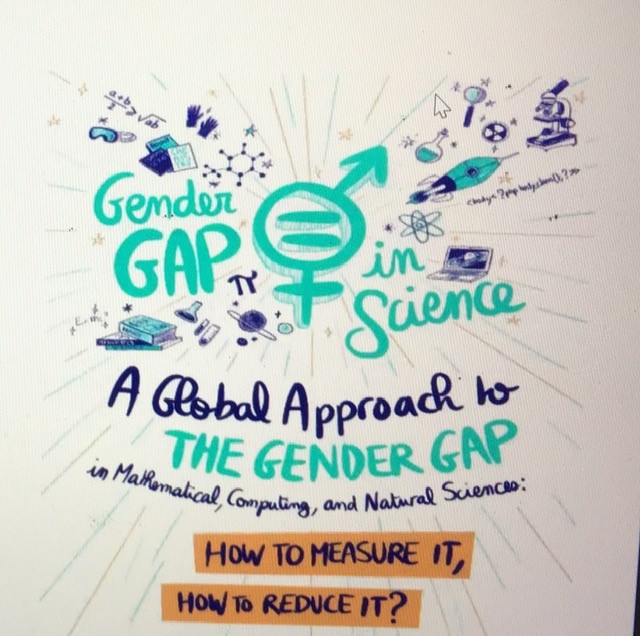Organised on 9 December by the Africa-Europe Science Collaboration Platform (AERAP), this virtual session was an opportunity to give more visibility to these initiatives and to relay their recommendations on how to improve the status of African women in science.
The meeting was part of a two-day roundtable discussion held by AERAP to consider the contribution of science to the priorities of the next EU-Africa summit (February 2022), as a critical aspect of EU-Africa relations and collaborations in the context of the United Nations Sustainable Development Goals (SDGs).
Many associations of African women in science arose in recent years, mainly made up of volunteers and operating with very little funding. They aim to address the gender gap and its multifaceted reasons (poverty and lack of access to education, social constraints, cultural biases and beliefs, etc.), through various activities (networking, mentorship, role models, discussion forums, scientific events, etc). Most African countries have less than 25% of female scientists and this number is even lower in STEM fields (Science, Technology, Engineering and Mathematics). Women face ‘leaky pipelines’ to their promotion, ‘glass ceiling’ to higher achievement of influential leadership positions, and very low rates of publications and success in competitive grants ( that have moreover significantly dropped since the start of the COVID pandemic).

During this virtual session, Aster Tsegaye (Society of Ethiopian Women in Science and Technology – SEWiST), Sophie Dabo-Niang (African Women in Mathematics Association – AWMA), Suereta Fortuin (South African Women in Science and Engineering – SA WISE), Somaya Saad (African Network of Women in Astronomy – AfNWA), Marie Chantal Cyulinyana (Rwandan Association of Women in Science and Engineering – RAWISE), Ezzoura Errami (African Association of Women in Geosciences – AAWG), Tana Joseph (Astronomy in Colour), Rajaa El Cherkaoui (Network of African Science Academies – NASAC), Jennifer Thomson (Organisation for Women in Science for the Developing World -OWSD), Anissa Belfetmi and Sabrina Absalon (Algerian Woman in Science – ALWIS) and Iroka Chi inma Joy (African Strategy – Women in Physics Forum) presented their associations/initiatives, objectives, challenges, needs and recommendations.
Key recommendations emerged from all these presentations, including:
- Better involvement of social sciences and humanities to deliver numbers, statistics and reports, in order to achieve success in the STEM fields, because as it was explained by a participant Fairouz Malek (research director at CNRS and Cofounder of Parité Science, France), “only numbers speak, and if we don’t have numbers, we will not be able to progress”.
- Active engagement of the diaspora, a ‘brain gain’ of women scientists highlighted by Aster Tsegaye, who could be used as mentors, role models,etc.
- Positive discrimination to level the playing field, starting with major investment in women, including in SDG-related science, technology and innovation programmes, allocations of awards, grants, and specific measures like removal of age limits for fellowships and grants to take into account women’s career breaks for rearing children. This positive discrimination does not preclude the need to involve the whole society and to reach more the male population to be more supportive.
- Unity making strength, efforts should be unified (under the umbrella of the African Union, a more official organization, suggested Errami Ezzoura).
Next step, these associations (and others likely to join) will work with the AERAP subcommittee on Women in Science, Technology and Innovation on a brief set of recommendations to policymakers for the EU-AU Summit scheduled on 17-18 February 2022.
There is an urgent need for change! Without empowering girls and women in science, and giving women equal opportunities to pursue and thrive in STEM careers, the world will lose a huge potential that could benefit society and contribute to reaching the UN SDGs.
Stay tuned, we will give you soon the link to the recorded event!
